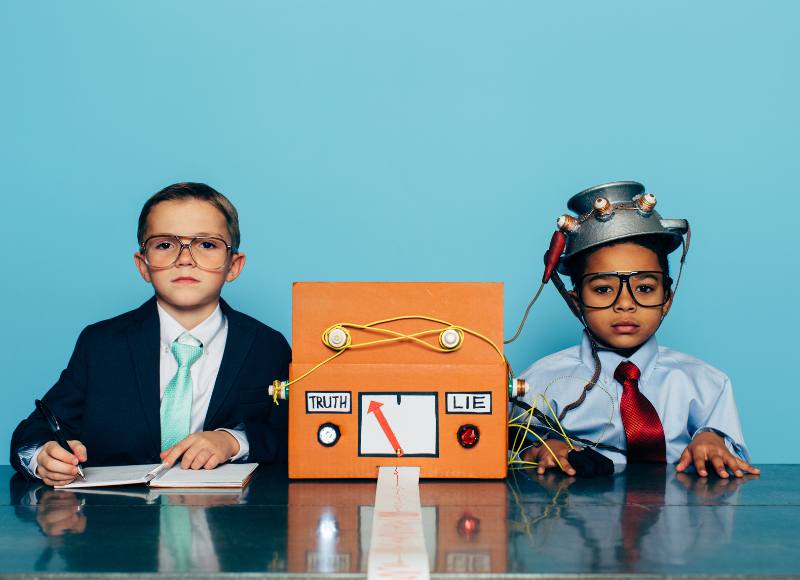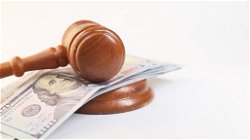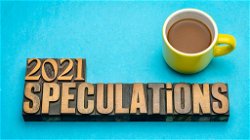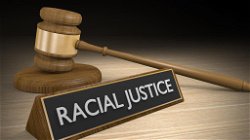How to Prepare for a Lie Detector Exam and Pass it?
James Bond
. 5 min read
When to take a lie detector exam and how to pass when it counts. The security was so strict that even the marching band was turned away at the metal detectors. While you may think you'll never be in a situation where a lie detector exam is necessary, you really have no idea what the future contains. Companies often utilize this kind of exam when interviewing candidates for open positions or conducting internal investigations. Remember, though, that the reliability and effectiveness of such apps can vary, so it's essential to do thorough research and consult professionals in the field for the best advice.

Getting Ready for Passing a Lie Detector Test
Before we get started, please subscribe to our channel by clicking the big red icon there
The bell for alerts should not be forgotten either. In this manner, you'll be the first to know whenever an upbeat video is uploaded. So, how exactly does a polygraph instrument function? It was a cardiologist called Sir James McKenzie who developed the first lie detector back in 1906. After a few years of development, his invention was ready to be introduced to the public as the polygraph machine.
The Lie Detector was first computerized in 1992, considerably improving its efficacy and accuracy
The truth itself cannot be revealed by a polygraph. When a person lies, their body goes through a unique set of physiological changes that are recorded. High blood pressure, palpitations, sweating, and abnormal breathing are all symptoms of these alterations. Up to fifty various responses, including the dilation of capillaries throughout the body, are detectable by today's state-of-the-art lie detectors.
That's why it's up to them to ask the proper questions at the right times
The accuracy of a lie detector test may reach up to 98 percent if it is administered by a trained specialist. The actual exam has nothing in common with the simulated one you see on the screen. When the detective yells at the criminal and violently pounds his hands on the table, you know the criminal is on edge. Truth be told, using a lie detector on someone takes a lot of time and is conducted in complete silence.
The questions are very targeted, detailed, and organized
Nevertheless, let's assume there are details you'd like keep hidden from your prospective employer. Even though contemporary polygraph machines are quite accurate, you may still study for the exam in preparation. Here are six methods to be ready for a polygraph examination. You must, first and foremost, prepare your body. Make sure you're in peak physical condition by preparing yourself 24 hours before the exam. Rest well tonight. Eight hours is a minimum requirement.
Also, you shouldn't gorge yourself excessively just before the event
Get your regular dose of medication. Put on whatever you find most comfortable. The emphasis on convenience and ease of use is clear. Don't deviate from your regular routine or you may start to feel the effects of the shift on your body. The regularity of your heartbeat will be supported by this. How often do you go for a morning jog? Don't pass this up. Your morning coffee is essential, right? Even now, don't be without it. Second, it's okay to be anxious.
Has there ever a time when you stole from your prior employer?
In such case, what steps can you take to artificially induce feelings of panic without spending a fortune? If it doesn't work, think of something terrifying, or recall the most humiliating moment of your life. You'd have to have steel nerves if it didn't make your heart race. Don't be dishonest with specifics; that's rule No. 3. If you have nothing to conceal or be ashamed of, please answer all of the questions truthfully. Providing more accurate information improves the accuracy of the final outcome.
When it comes to the finer points, most people are willing to stretch the truth
The examinees are too concerned about being given trap questions during the examination, as they believe that this is the area in which they should be most vigilant. nonetheless, scholarly consensus suggests. According to the ethics of polygraph testing, the questions are all quite straightforward, and there shouldn't be any surprises. It's a little-known fact that, while being often left out of Hollywood depictions of standardized testing, studying the questions in advance might help reduce test-day anxiety.
Only the need to hurry might skew the findings
Take your time answering each question carefully, and pay attention to the details being asked. If you hesitate before answering, you may figure out whether the query is trivial (such, "What's your name?") or more in-depth. Questions may be more direct, such "Have you ever lied to gain benefits?" or "Have you ever lied on a job application?" but they should still be controlled and relevant. In addition, try to respond in a concise and straightforward manner.
In most cases, the only appropriate responses are yes or no to exam questions
The need to provide more detail in your responses is natural. Please don't give in to this urge. It doesn't matter how much pressure the examiner applies, you must not provide any specifics. Be serious and avoid being too pleasant. Also, just reveal as much as is absolutely essential. Some dishonest polygraph examiners may resort to dirty tactics only to get a guilty confession out of you. As an example, they may persuade you that they can detect your deceit.
Don't be Fooled
This strategy works well, but only for the very self-disciplined. If you're going to have to lie, it's really simpler to be frightened and cause a negative response than to try to think of anything upbeat and honest as you deliberate over a topic. Try imagining yourself at your favorite area before the exam. Make up a carefree universe in your head. Maybe you need some assistance maintaining your composure. In this manner, your physical response will be optimized.
You should not resort to physical means
It is possible, albeit unlikely, to obtain unfavorable physical responses during the test. There is a plethora of suggestions available on the web. The next time you need to respond quickly, hold your tongue, or tighten your muscles, put some attack in your shoe and walk on it. You've heard these suggestions before, but do they work? Sorry to be the bearers of bad news, but seasoned professionals aren't fooled by these techniques.
Just the opposite, deceptive methods of this kind are quite obvious
In reality, examiners often request that candidates remove their footwear since they are well aware of such tactics. Moreover, a polygraph can tell the difference between a genuine and false response to physical discomfort. If you are detected cheating on a test, the exam will likely be postponed, or your final grades will be given a more critical eye in light of your various strategies. Now that you've taken the polygraph, the next step is an interview to go through the results.
The reviewer is also tasked with assessing your mental and physical health
They may attempt to manipulate your emotions by telling you they already know you lied right now. So maintain your resolve. It may be unwise to submit to a lie detector test if doing so might have unfavorable psychological or physiological effects. If you have heart disease, are pregnant, have a respiratory condition (even the common cold), are epileptic, suffer from general pain, or are being forced to take the test against your will, you should not take a polygraph.
Conclusion
In conclusion, lie detector exams are often used by companies during the interview process and internal investigations, as well as by police, military, private investigators, security services, and intelligence organizations. The polygraph machine records physiological changes in the body when a person lies, and the accuracy of the test can be up to 98 percent if administered by a trained specialist. Finally, examinees should not be fooled by any dirty tactics used by dishonest examiners and should imagine themselves in a carefree universe to avoid anxiety and negative responses.
More Stories from
Culinary Adventures: Exploring the World's Unique Food Cultures
From vibrant street food delights to treasured family recipes passed down through generations, discover the rich tapestry of global gastronomy.
Unraveling the Scourge of Corruption: Causes, Impacts, and Global Efforts
This article delves into the pervasive issue of corruption, exploring its causes and the far-reaching impacts it has on economies and societies worldwide.
The Enchanting Rhododendron: Himachal Pradesh's State Flower
Discover the captivating Rhododendron, the state flower of Himachal Pradesh, India. This vibrant evergreen shrub, native to the Himalayas, paints the landscape with breathtaking colors each spring.
Exploring the Uncharted: Speculative Insights into the World Beyond 2021
This article provides a brief overview of potential geopolitical shifts, technological advancements, environmental concerns, health challenges, economic developments.
Racial Justice and Inclusivity: Promoting Equality in Society
Explore the vital journey towards racial justice and inclusivity as we uncover the challenges faced by marginalized communities and the transformative power of inclusivity.











.png?width=40&aspect_ratio=1:1)

.png?width=40&aspect_ratio=1:1)